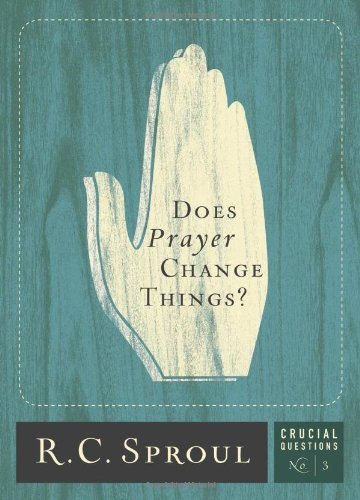A Brief Book Summary from Books at a Glance
By Kyle Taft
Overview
God is sovereign, and prayer cannot change God Himself or His purposes, but it certainly does change things. Appropriate prayer honors God and brings the pray-er benefits. Appropriate prayer recognizes God’s holiness and transcendence, and approaches Him humbly, giving proper adoration and thanksgiving in addition to bringing supplications. God answers the prayers of those clothed in Christ’s righteousness who pray in His will.
Table of Contents
- The Place of Prayer
- The Purpose of Prayer
- The Pattern of Prayer
- The Practice of Prayer
- The Prohibitions of Prayer
- The Power of Prayer
Summary
Chapter One: The Place of Prayer
The goal of the Christian life is “godliness born of obedience to Christ” and “prayer prompts and nurtures obedience” (1). Prayer has a “vital place” in the Christian life as “one cannot be a Christian and not pray” (1). It is a “privilege and duty” (1). “The great saints of the church… were great people of prayer” (2) and the neglect of prayer has led to stagnation in many Christians’ walk with God. After Peter fell asleep in the garden instead of praying, he tried to take on the Roman army with a single sword, then denied Jesus (4). The Scriptures themselves therefore command Christians to pray throughout the day, and 1 Thessalonians 5:17 instructs believers to “pray without ceasing” (4).
Chapter Two: The Purpose of Prayer
If nothing happens apart from the will of God, why should believers pray? Can prayer really change anything? The truth that God commands His people to pray means that the question “what if it doesn’t do anything” is not the point. Yet even beyond that command, verses like James 5:16 tell believers that the righteous prayer accomplishes much. Prayer is for “God’s glory and for our benefit, in that order… we pray to. . .
[To continue reading this summary, please see below....]The remainder of this article is premium content. Become a member to continue reading.
Already have an account? Sign In
